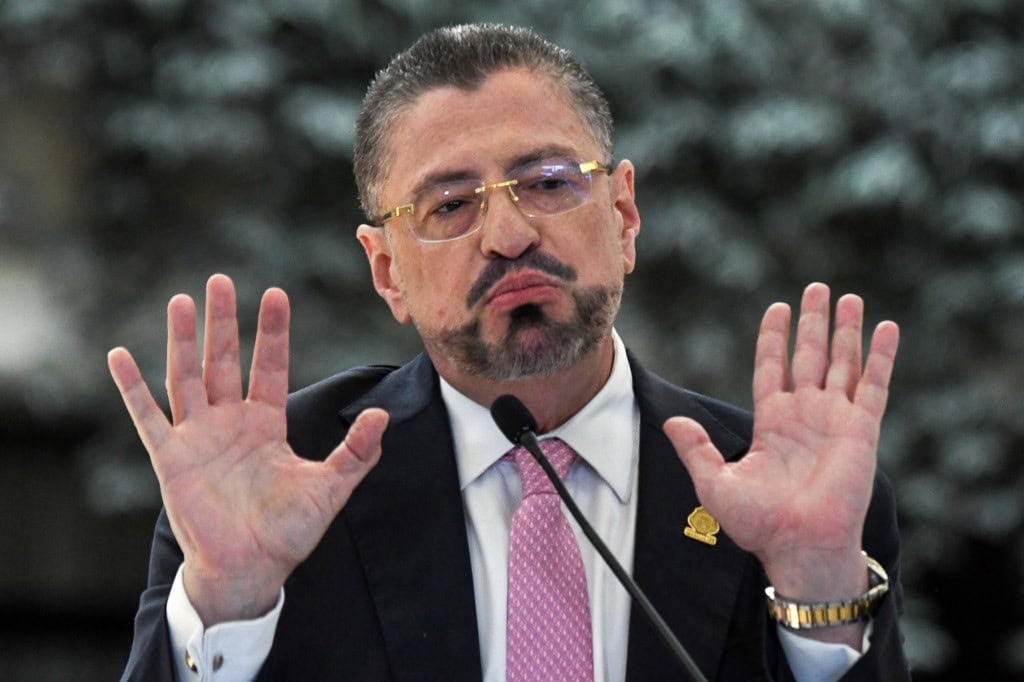President Rodrigo Chaves has repealed Costa Rica’s therapeutic abortion protocol, a move that fulfills a long-standing promise and tightens rules around the procedure. The original protocol, established in 2019 under former President Carlos Alvarado, aimed to clarify when doctors could perform abortions to save a woman’s life or health without facing criminal charges. Chaves signed the repeal decree alongside Deputy Minister of Health Mariela Marín during his weekly press conference on Wednesday.
Chaves explained that the old regulation contained gaps that could allow broader access to abortions. “I am proud to have repealed the existing regulation, which had loopholes,” he said. “Today, the only reason an abortion can be performed without criminal penalty is to protect the life of the mother.” He expressed strong approval of the decision, noting it aligns with his administration’s focus on protecting unborn life while addressing risks to mothers.
Marín echoed this stance, emphasizing that the new rules safeguard both the mother and the child. “It is our duty to care for the most vulnerable, including mothers and unborn children,” she added. The updated protocol requires stricter medical evaluations and ensures abortions occur only when no other options exist to preserve the mother’s life.
This change comes exactly on the deadline Chaves set earlier this month in a meeting with the Evangelical Alliance, where he committed to repealing the protocol by October 15. The timing also coincides with the start of Costa Rica’s election campaign, though Chaves had pledged this action since his own presidential run.
He addressed the delay by pointing to concerns over potential rulings from the Inter-American Court of Human Rights. “Some experts warned of pending cases that could lead to orders changing our society’s values and allowing free abortion,” he said. “We were patient and prudent. Once we clarified the doubts, I kept my word.”
For context, Article 121 of Costa Rica’s Penal Code, in place since 1971, permits abortions only to avert serious danger to a woman’s life or health when no alternatives are available. However, without a clear protocol for decades, doctors often hesitated due to legal fears, leaving the law largely unenforced. The 2019 protocol under Alvarado and then-Health Minister Daniel Salas sought to fix that by providing guidelines for implementation, making it official as Executive Decree No. 42113-S.
In 2023, Chaves’s government signaled plans to revise the protocol with tougher requirements. The repealed version allowed terminations if a woman’s life or health was at risk and unavoidable otherwise. Critics argued it opened doors to misuse, while supporters saw it as essential for women’s safety in medical emergencies.
Women’s rights groups have raised alarms over the repeal, fearing it could limit access even in life-threatening situations. In Costa Rica, where elective abortions remain illegal and punishable by prison time, therapeutic cases are rare but critical. Data from the Health Ministry shows only a handful of such procedures annually, often amid controversy.
Chaves defended the move as consistent with his administration’s principles. “From the beginning, we announced we were going to do this,” he stated. The new decree aims to close perceived loopholes while maintaining protections for mothers in dire need.
This development reflects broader debates in Costa Rica over reproductive rights, religion, and law. Evangelical leaders have praised the change, viewing it as a step toward stronger defenses for life from conception. Meanwhile, health advocates worry it might deter doctors from acting swiftly in emergencies, potentially endangering women.
As the election season heats up, this repeal could influence voter opinions on social issues. Chaves, who took office in 2022, has positioned himself as a defender of traditional values, and this action reinforces that image. Observers will watch how the new protocol plays out in practice, especially in hospitals where decisions must balance ethics, medicine, and the law.
The government has not detailed when full implementation begins, but officials say training for medical staff will follow to ensure compliance. For now, the repeal marks a shift in how Costa Rica handles one of its most sensitive topics.

